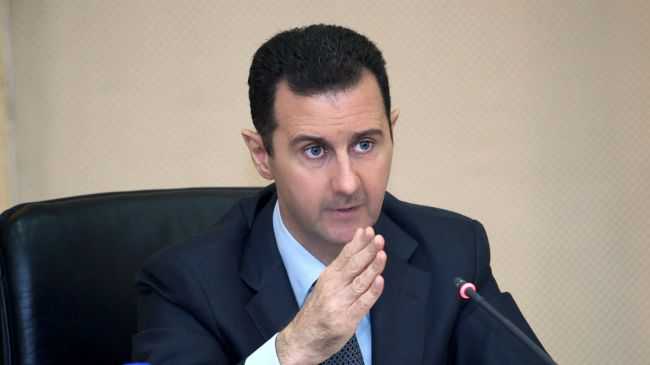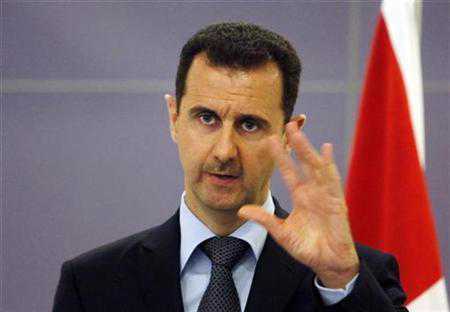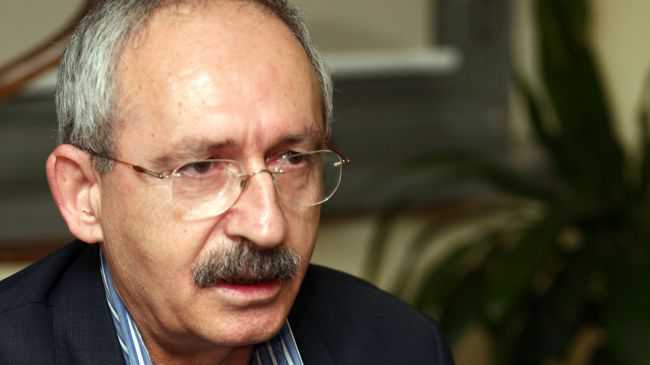By RICK GLADSTONE
Syria lashed out at Turkey and Jordan on Thursday for what it called their duplicitous work in fomenting the Syrian rebellion, accusing the Turkish prime minister of chronic lies and telling the Jordanians they were “playing with fire” in letting insurgents arm and train on their soil — a possible hint of retaliation.
The criticisms in the state news media appeared to be part of an intensified propaganda response to new rebel gains in the two-year-old conflict and President Bashar al-Assad’s further isolation.
It included snippets of an interview that Mr. Assad had given to a Turkish television station, in which he also denounced the Arab League for granting Syria’s seat to the opposition coalition bent on overthrowing him.
Turkey’s prime minister, Recep Tayyip Erdogan, who was once close to Mr. Assad, has turned into an ardent enemy and repeatedly called for his departure. Turkey is also housing more than 250,000 Syrian refugees and is helping the Free Syrian Army insurgent group, although the Turks insist they are not providing weapons. Syria, which shares a 550-mile border with Turkey, has frequently accused Turkey of arming the rebels.
“Erdogan has not said a single word of truth since the beginning of the crisis in Syria,” Mr. Assad said in the interview with the Ulusal Kanal television channel in Turkey that is to be broadcast on Friday. A brief preview was posted on YouTube.
Mr. Assad appeared to reserve special criticism for the Arab League, which suspended Syria’s membership in November 2011 and awarded the vacant seat to the National Coalition of Syrian Revolutionary and Opposition Forces, as the legitimate representative of the Syrian people, in a formal ceremony on March 26.
“Real legitimacy is not accorded by organizations or foreign officials,” he said. “All these theatrics have no value in our eyes.”
Syria state television, citing reports in The New York Times and other Western news media about Jordan’s role in helping the rebels, said they showed Jordan had “a hand in training terrorists and then facilitating their entry into Syria,” according to a translation by The Associated Press. It quoted state radio as saying Jordan was “playing with fire.”
The Syrian newspaper Al Thawra, also citing those Western news reports, said in a front-page editorial that the Jordanian government could not claim neutrality while actively supporting the insurgents and collaborating with the United States, Saudi Arabia and others hostile to Mr. Assad. “Their attempts to put out the flame that the leaked information caused will fail in allowing them to continue their game of ambiguity because they have gotten really close to the volcanic crater,” the editorial said.
In what appeared to be a veiled threat of retaliation, the editorial also said “it is difficult to prevent sparks from crossing the border.”
There was no comment from Jordan’s government on the warnings, which have come as insurgent activity in southern Syria near the Jordanian border has escalated and posed a new threat to Assad loyalists there. In the past few weeks, rebels have seized territory near the southern city of Dara’a, where the uprising against Mr. Assad first began.
At the same time, Jordan is facing an acute refugee crisis caused by the Syrian conflict. There are at least 320,000 registered refugees in the country, according to the United Nations, and many more who entered Jordan without registering.
United Nations officials have been warning that the refugee crisis could overwhelm Syria’s neighbors, who have collectively absorbed more than 1.3 million Syrians since the conflict began.
On Thursday in Lebanon, home to about 500,000 Syrian refugees, the commissioner general of the United Nations Relief and Works Agency, Filippo Grandi, said the refugee flows caused by the conflict were becoming “unmanageable and dangerous.”
Mr. Grandi’s agency is responsible for Palestinian refugees, a legacy of the Arab-Israeli conflict. Lebanon, which has a population of four million, is already home to about 460,000 Palestinian refugees, and the Lebanese are increasingly concerned that Syria’s Palestinian refugee population of 530,000 could surge into Lebanon if fighting intensifies in the Damascus area, where many of them live. So far, however, Mr. Grandi said, more than 90 percent have stayed in Syria.
Hala Droubi contributed reporting from Dubai, United Arab Emirates, and Thanassis Cambanis from Beirut, Lebanon.
A version of this article appeared in print on April 5, 2013, on page A8 of the New York edition with the headline: Jordanians And Turks Are Focus Of Syria’s Ire.
via Syria Lashes Out at Jordan and Turkey – NYTimes.com.






